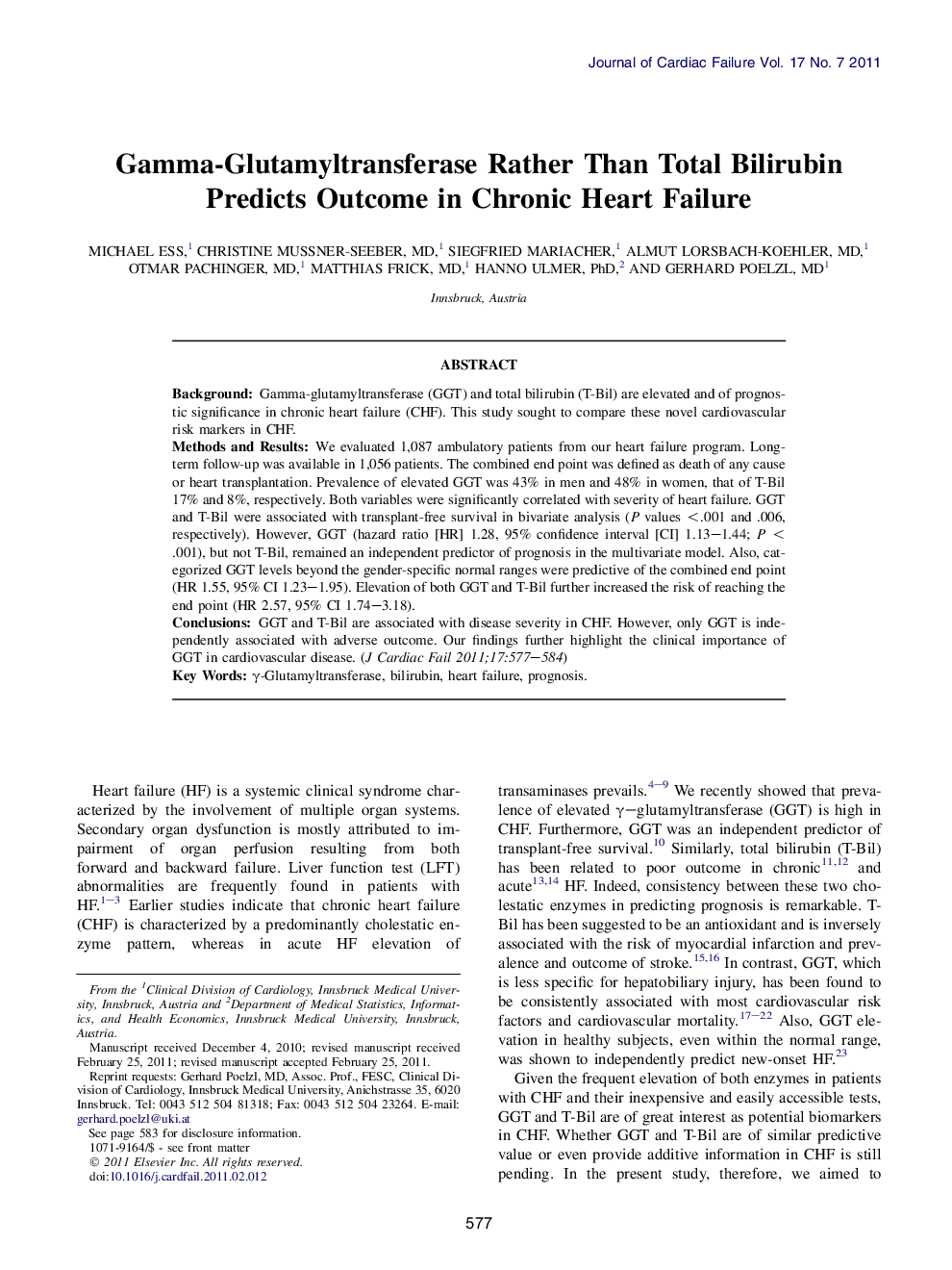| Article ID | Journal | Published Year | Pages | File Type |
|---|---|---|---|---|
| 2960753 | Journal of Cardiac Failure | 2011 | 8 Pages |
BackgroundGamma-glutamyltransferase (GGT) and total bilirubin (T-Bil) are elevated and of prognostic significance in chronic heart failure (CHF). This study sought to compare these novel cardiovascular risk markers in CHF.Methods and ResultsWe evaluated 1,087 ambulatory patients from our heart failure program. Long-term follow-up was available in 1,056 patients. The combined end point was defined as death of any cause or heart transplantation. Prevalence of elevated GGT was 43% in men and 48% in women, that of T-Bil 17% and 8%, respectively. Both variables were significantly correlated with severity of heart failure. GGT and T-Bil were associated with transplant-free survival in bivariate analysis (P values <.001 and .006, respectively). However, GGT (hazard ratio [HR] 1.28, 95% confidence interval [CI] 1.13–1.44; P < .001), but not T-Bil, remained an independent predictor of prognosis in the multivariate model. Also, categorized GGT levels beyond the gender-specific normal ranges were predictive of the combined end point (HR 1.55, 95% CI 1.23–1.95). Elevation of both GGT and T-Bil further increased the risk of reaching the end point (HR 2.57, 95% CI 1.74–3.18).ConclusionsGGT and T-Bil are associated with disease severity in CHF. However, only GGT is independently associated with adverse outcome. Our findings further highlight the clinical importance of GGT in cardiovascular disease.
